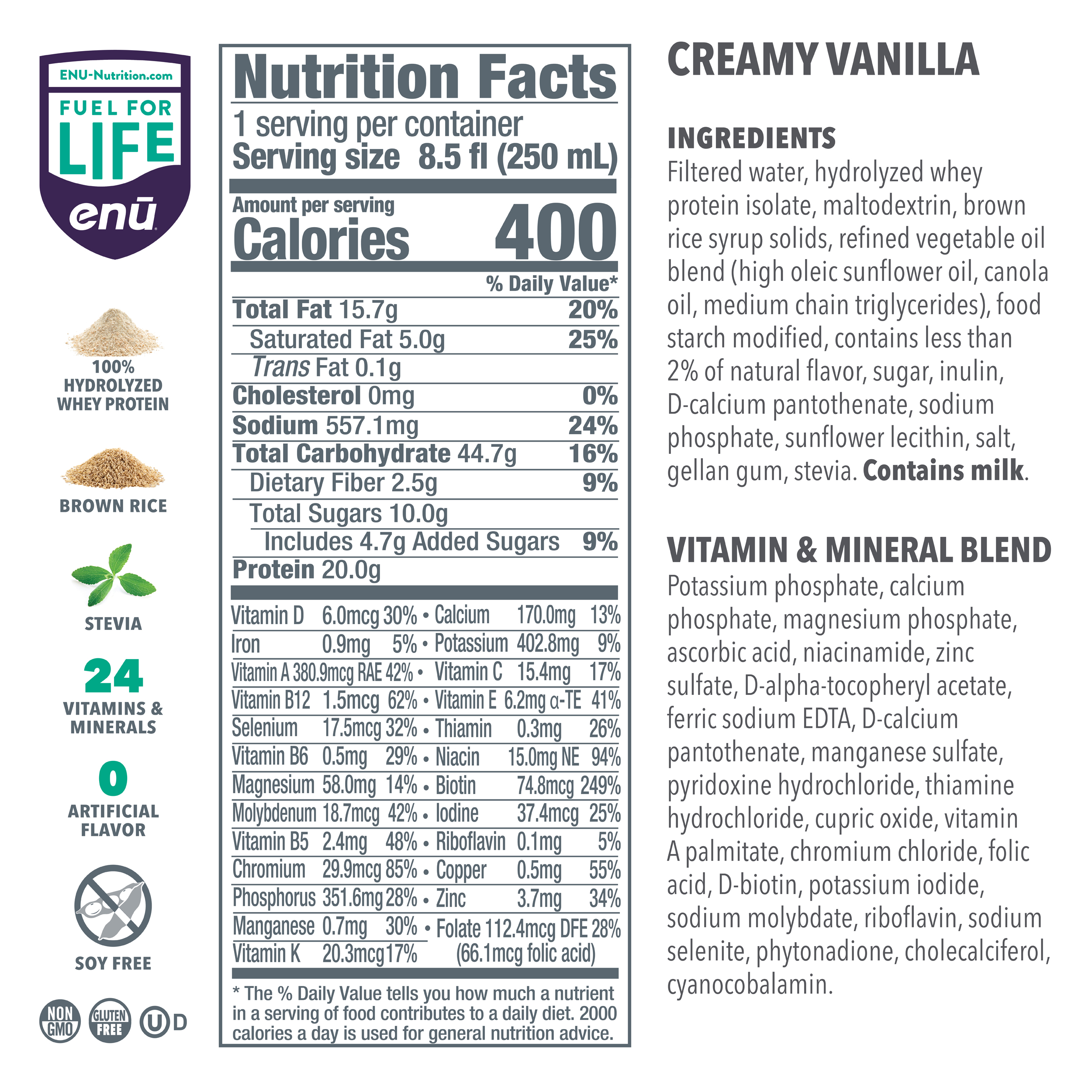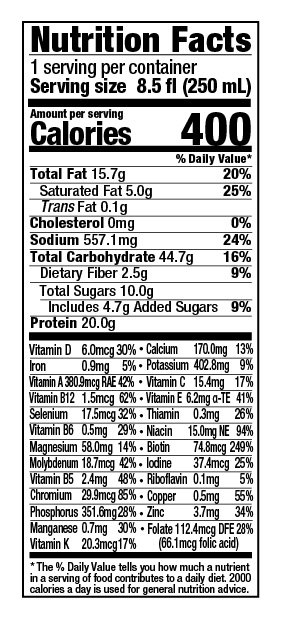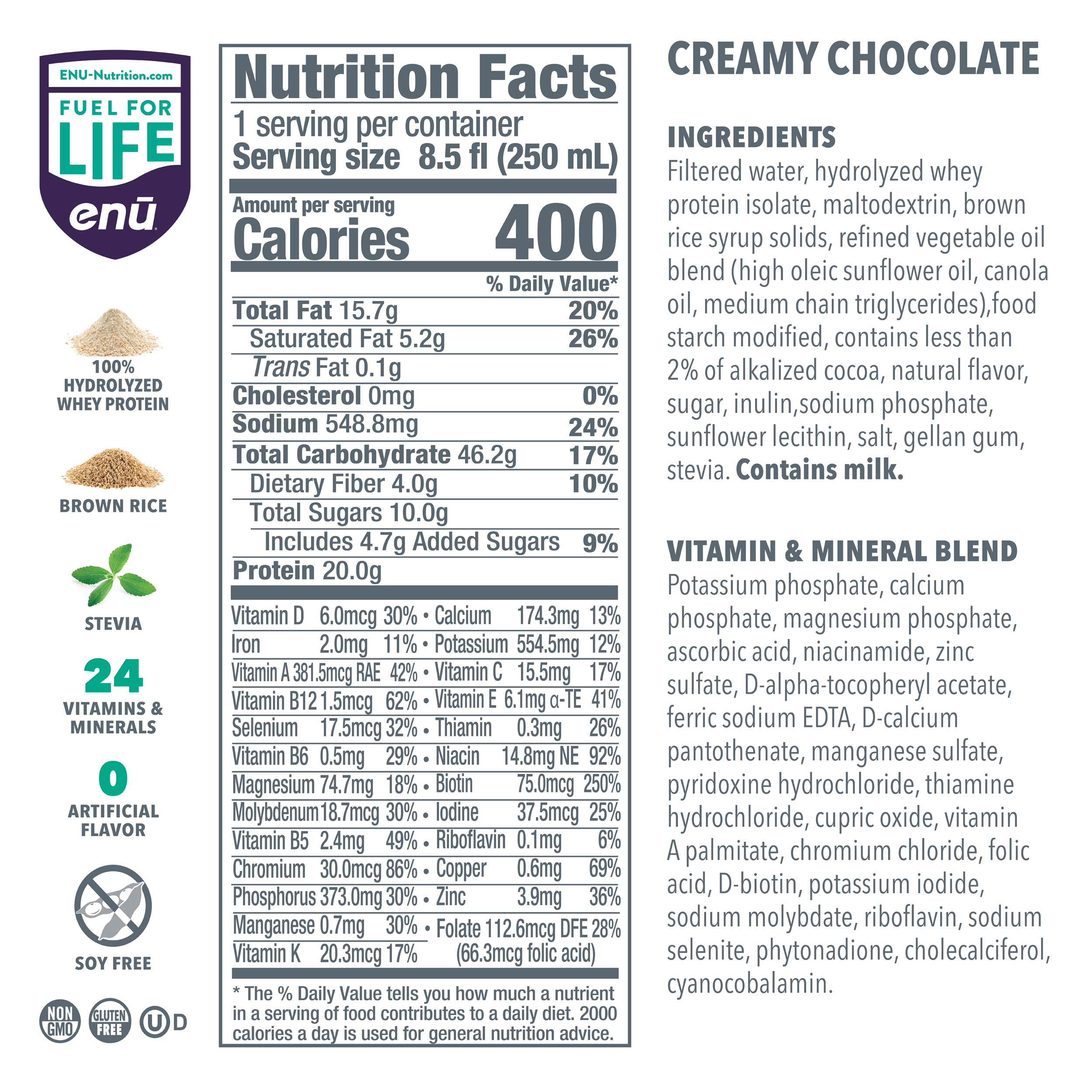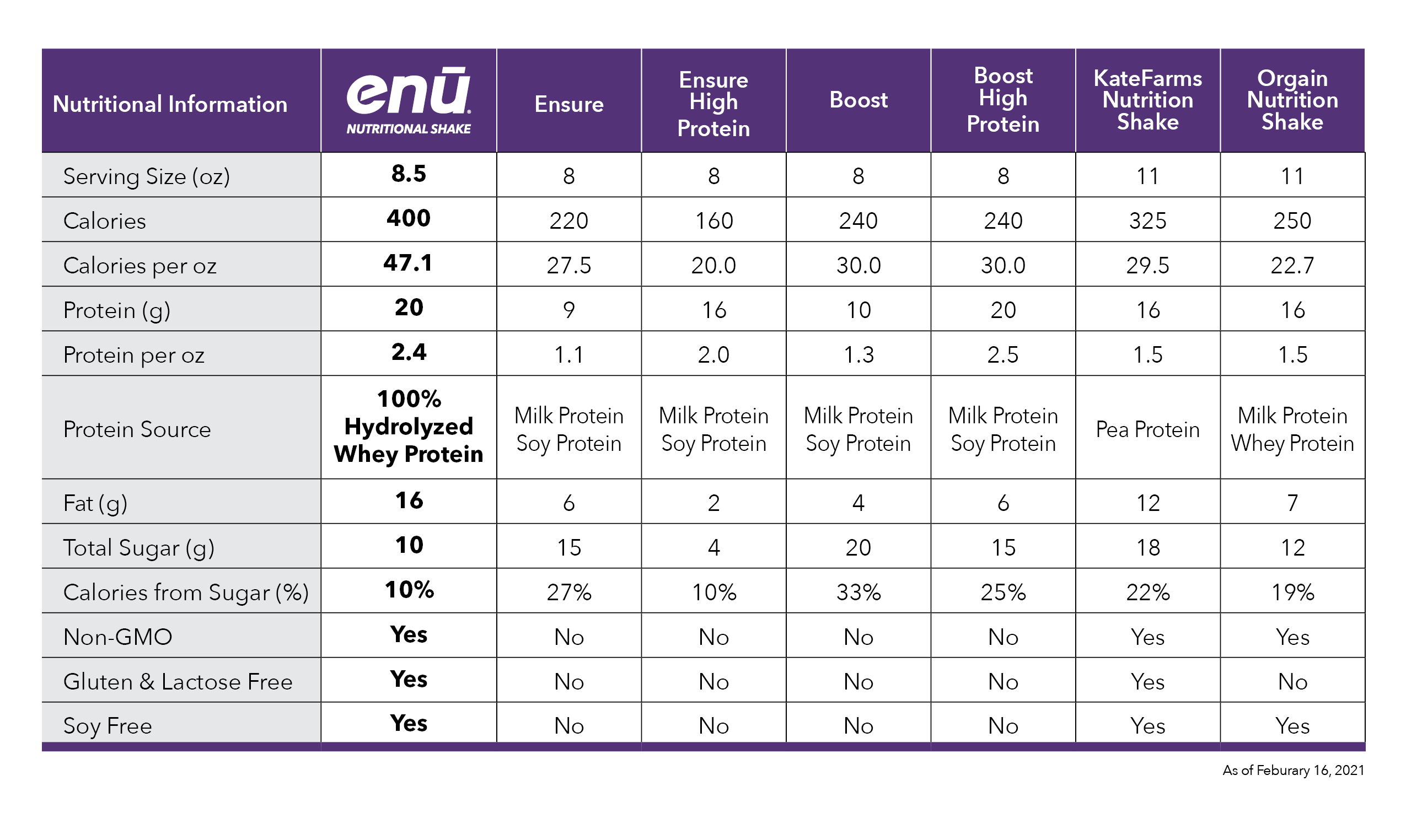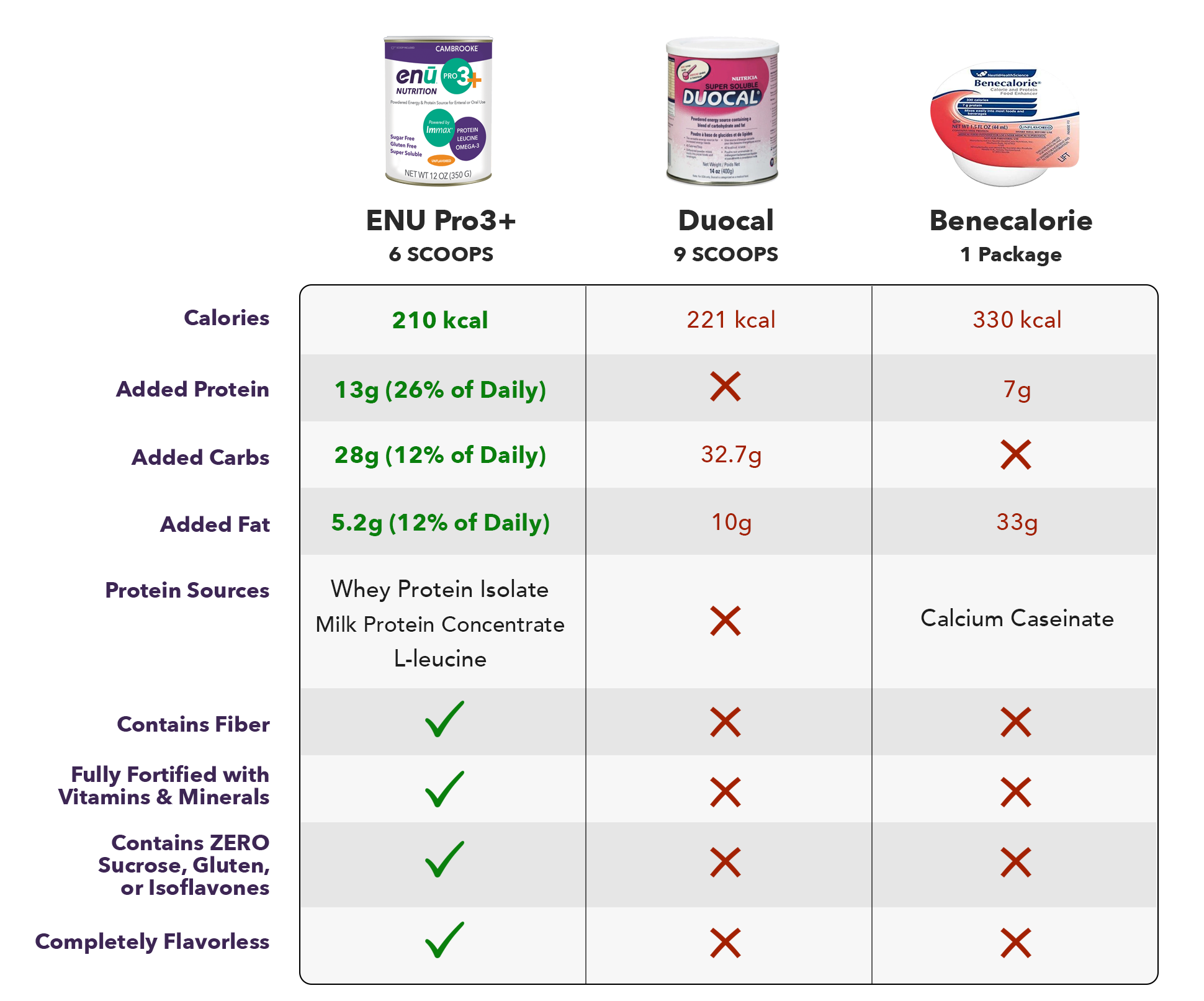
Get a FREE
ENU Intro Pack*
*Just Pay $2.00 Shipping

How Do You Fix Loss of Appetite?
The loss of appetite is one of those issues that seems far milder than it is in practice. People who constantly feel like they don’t want to eat suddenly have to contend with issues that most of us never have to think about: Am I getting enough calories today? What is my nutrient intake like? When should I have my next meal? When you’re used to eating whenever you get hungry, the lack of that hunger can make it tough to answer these questions, which can lead to long-term health issues and worsen the prognosis of patients with a variety of serious conditions. For those reasons, it’s crucial that appetite loss be addressed sooner rather than later, but many people are left wondering, “How do you fix loss of appetite?” To find out, keep reading as the team at ENU – makers of healthy meal replacement shakes – provide some answers.
Why It’s Important to Fix Loss of Appetite
In our image-obsessed culture, a person’s weight is frequently the subject of intense scrutiny, and as a result, virtually any method of losing weight or staying thin is viewed in a positive light, even if it’s not necessarily healthy. This often creates a problem for those who experience loss of appetite; after all, why fix an issue that’s helping you meet your weight loss goals?
The truth is that appetite loss is far more insidious than most people realize. When you don’t feel the need to eat, you naturally do so less often, which means fewer calories and nutrients for your body. While a slight reduction in calorie intake may be beneficial for some, the loss of nutrients is rarely a good thing, and over time, it leaves the body without the resources it needs to keep working properly – a condition called malnutrition.
Left unchecked, malnutrition can cause fatigue, poor concentration, feelings of being cold, and longer healing times after injuries, to name a few symptoms. If you or someone you know is experiencing appetite loss, it’s important to address the problem and fix the loss of appetite quickly, before malnutrition has a chance to set in and the negative effects of the condition take hold.
Common Causes of Loss of Appetite
In most cases, the best way to fix loss appetite is to address the underlying cause. This type of targeted treatment can prove very effective, though there are some cases where it’s all but impossible; for instance, providing nutritional support for cancer patients often requires addressing appetite loss – a side effect of chemo and other treatments – without stopping the cause of that symptom. If, however, one of the following issues is impacting your appetite, your doctor may be able to provide some kind of treatment or suggest certain lifestyle changes to help fix the problem:
- Diabetes
- Aging
- Hypothyroidism
- Chronic pain
- Digestive issues
- Mental illness
- Cancer
- An infection, such as a cold or the flu
- Anemia
- Pregnancy
Remember that just because you think you have a particular symptom, such as appetite loss, doesn’t mean you necessarily have a particular illness. Always let your doctor handle the diagnosis, then follow whatever treatment regimen they prescribe.
Tips for Fixing Loss of Appetite
Depending on the cause of your loss of appetite, the strategy to fix it can take any number of forms. Below, we’ll cover some of the most common ways people go about attempting to fix their appetite loss:
Lifestyle Changes
Most of us get used to a certain routine, which often includes eating at certain times or maintaining a certain level of physical activity. If you start to notice a lack of appetite from day to day, it could mean that it’s time to change up your lifestyle a bit.
Doctors often recommend changes to patients’ sleep schedules as a way of improving appetite loss, for instance, or suggest a greater level of physical activity. Better all-around self-care can often go a long way toward improving your appetite, though it won’t fix it in every case.
Medication
There are some cases in which a doctor might prescribe a medication to increase a person’s appetite, though they’ll likely try lifestyle changes first. In addition to adding a drug to your regimen, your doctor may also try changing the dose or frequency of a medication you’re already taking, since the loss of appetite is often a side effect of certain prescription drugs.
If you notice that your loss of appetite started around the time that you started taking a particular medication, be sure to mention that fact to your doctor. It could shed some light on the issue and help them determine a new course of treatment.
Talk Therapy
Across many different mental illnesses, loss of appetite is often a common symptom. Whether you’re battling depression, anxiety, chronic stress, or some other mental health issue, there a good chance that your appetite loss can be helped, or even fixed, by taking the appropriate steps toward treatment. In some instances, this means taking medication, but talk therapy has also proven an effective tool for many people with mental illnesses.
Try a Meal Replacement Shake or Nutrition Powder for Loss of Appetite
If you struggle to get enough calories or nutrients in your diet, know that a nutrition shake can help, particularly if it’s one aimed at replacing a well-balanced meal. ENU shakes offer a blend of healthful protein, fats, and carbs – plus 24 vitamins and minerals – that can make it easier to hit your daily nutritional goals, even if you lack an appetite. For more on our shakes and nutritional powders, visit ENU online or call (855) 266-6733 today.





